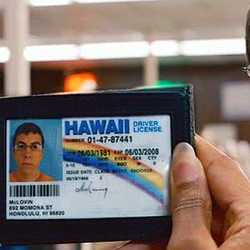Tucson DUI
Arizona has some of the toughest DUI laws in the United States. There’s both mandatory jail time for even first-time low-level offenders, and mandatory interlock requirements for all convicted
There’s four essential types of DUI’s typically charged in Tucson: (i) slight impairment or impaired to the slightest degree in violation of ARS § 28-1381(a)(1); (ii) per se or over a .08 BAC in violation of ARS § 28-1381(a)(2); (iii) Extreme DUI or over a .15 BAC in violation of ARS § 28-1382; and (iv) Aggravated DUI in violation of ARS § 28-1383.
The statutory and presumptive legal limit in Arizona is .08 BAC.
The penalties for these four types Title 28 Arizona DUI’s all include mandatory jail and loss or restriction of driver’s license. For §1381 simple DUI convictions there’s a mandatory net one day in jail. For Extreme DUI § 1382 convictions there a 30 day minimum jail. For Aggravated DUI, a class four felony, there’s typically a minimum four months in prison and revocation of driver’s license.
The professional consequences may significant. For licensed professionals in Arizona including teachers, lawyers, doctors, nurses, and security clearance holders there may be immediate mandatory reporting requirements, administrative investigations and sanctions.
Types of DUI
There are four main types of DUI offenses commonly charged in Arizona. In order of severity (from least to most severe): (i) driving while impaired to the slightest degree (ARS § 28-1381(a)(1)); (ii) driving with a blood alcohol of over a .08 (ARS § 28-1381(a)(2); (iii) Extreme DUI (over a .15 BAC); and (iv) Aggravated DUI. Additionally, in the case of accidents involving damage to property or potential actual injury there are three common supplemental vehicular common charges including notably criminal damage (ARS § 13-1602); endangerment (ARS § 13-1201 ); and aggravated assault with a deadly weapon, (ARS § 13-1204), all commonly charged in Arizona.
Impaired to the Slightest Degree ARS §28-1381(a)(1)
As previously explained in my introductory section, one of the hallmarks of Arizona DUI law is that there need be no requisite level of alcohol on board for criminal liability to attach. The core statute ARS § 28-1381 criminalizes driving while impaired even slightly. And slight is a relative term. In Arizona so long as judgment or intellect is even slightly affected by alcohol there may be grounds to arrest even in cases well below .08.
It is a police and prosecutorial favorite, usually the starting point of a defendant’s journey through the Arizona criminal justice system.
Moreover, police and prosecutors agree that they may prove impairment, without any evidence of bad driving, doing so rather through the administration of a battery of three psycho-physical tests, designed to detect slight impairment. These tests are known in police lingo as standardized field sobriety tests , and are offered or essentially mandated, by police during nearly every DUI roadside investigation, the results of which, self-reported by the police, almost always suggest at least slight impairment even if none is there.
Over a .08 BAC ARS § 28-1381(a)(2)
The second charge, equal in severity but differing in proof, is the companion per se charge contained at ARS § 28-1381(a)(2).
This subsection exposes to criminal liability , even if there is no impairment anyone determined within “two hours of driving” be at or over the presumptive limit .08 BAC. This means in effect that there may be no bad driving at all. Rather there may be unexpected passage of field sobriety tests, but if the blood or other chemical test determines that the driver is over a .08 within two hours of driving such driver is per se culpable and exposed to conviction without other requisite proof. Normally, prosecutors pair the impaired to the slightest degree and the per se .08 charge, which in effect forces the defendant and her attorney to defeat both charges to gain a win, an ostensibly towering obstacle, at least as is intended to so appear.
Extreme DUI ARS § 28-1382
The third charge, more severe, yet common, and still solidly a misdemeanor, is entitled Extreme DUI. It is charged (often after arrest) wherever a person is determined to have an alcohol level of .15 or more “within two hours of driving”. Like the per se charged above, no poor driving is necessary, in fact, as no actual “driving” is necessary.
What distinguishes extreme DUI however from its non-extreme cousins is not the proof but the penalties as we discuss at more length below. Yet it is worth mentioning here that the minimum penalty for “extreme DUI is amplified from the one day in jail but amplified to 30 days in jail, a thirty-fold increase. More frightening still, if the person is determined to be over a .20 within two hours of driving the minimum penalties jumps up to 45 days, an ostensible 45-fold enhancement from the basic charge package.
As a practical matter, though Tucson-area prosecutors, particularly in non-accident extreme DUI cases, for first time offenders, usually offer plea agreements, a, that greatly reduce jail exposure to typically one or two net days, and in lieu of more impose something happily called “home detention” which I will explain later.
Aggravated DUI ARS § 28-1383
Aggravated DUI is a Class Four Felony, most often with attendant mandatory prison time at least four months at the Arizona Department of Corrections . A person can be liable for aggravated DUI if they are impaired to the slightest degree and one of the following is true (i) they have two prior misdemeanor DUI convictions within the prior 84 months; or (ii) they are driving on a license suspended or restricted for a prior DUI; or (iii) they are driving impaired with a child under fifteen years old in the vehicle; or (iv) they are driving impaired the wrong way on a highway. See ARS § 28-1383.
Accident DUI – Criminal Damage ARS § 13-1602
In accident DUI’s the police and prosecutor often charge additional crimes, straight from Title 13, Arizona’s general criminal code. Such attendant charges have varying but almost always decidedly negative consequences, both direct and collateral.
By far the most common attendant charge is criminal damage, which requires proof only that a person “recklessly” caused damage to the property of another. The value of the damage determines the statutory offense level.
Where damage is under $1,000.00 the crime is classified as a “Class One Misdemeanor.” So far so good. However, where the value of the damage is over $1,000.00 the charge is classified statutorily as a class six felony.
And as a practical matter, if there is virtually any modicum of visible damage to another vehicle, or a sign or light or utility pole, even a dent the damage estimate will almost always come in over the threshold “one thousand dollars” and therefore support a felony indictment in Arizona Superior Court even where the underlying DUI is a misdemeanor. See ARS § 13-1602.
These cases are common as candy.
In the end, criminal damage can be a deceptively serious charge, giving the prosecutor a way to charge the DUI matter as a felony, and haul you or your family member into Superior Court.
DUI Accident Bodily Injury – Endangerment & Aggravated Assault
Less commonly, and more seriously, and all too often, DUI accidents involve potential or actual injury to other persons, often those in another vehicle. These are serious charges that can result in designated felony liability, even if the underlying DUI is only a misdemeanor.
Endangerment codified at ARS § 13-1201 requires only “recklessly endangering the life or well-being of another.” No actual injury is necessary. Just the potential. Aggravated Assault, ARS § 13-1204 on the other hand attaches only where the defendant recklessly injures another.
To make matters worse, prosecutors all too often charge in injury accidents “Aggravated Assault with a Deadly Weapon,” with the car serving as the “deadly weapon”. Such charging practice allows the prosecutor to seek mandatory prison time, and other enhanced penalties even where the underlying DUI is a misdemeanor, and even where the defendant has never been previously arrested, cited or charged in his life.
Arizona DUI Laws
Arizona’s DUI laws, some of the most restrictive in the nation, even for first-time offenders, are contained primarily within the Arizona Motor Vehicle Code. A single statute Arizona Revised Statutes Title 28 section 1381 contains core misdemeanor crimes and penalties, that in three distinct ways set Arizona’s laws apart from those in most other states.
Impaired to the slightest degree
First, in Arizona it is not even necessary that a person be “over the legal limit,” what the public thinks of as “.08” to be subject to arrest, charging and conviction for DUI. Pursuant to ARS §28-1381(a)(1) if a person is even “impaired to the slightest degree” by alcohol, or drugs, or a combination thereof, that person may be found guilty of a class one misdemeanor..
The term “impaired to the slightest degree” is not defined by statute but caselaw and commonly given or pattern jury instructions approved by the Arizona Supreme Court suggest “impaired to the slightest degree” does not require physical impairment at all. Rather slightest impairment “of judgment or intellect” in ability to operate a motor vehicle may suffice to sustain an Arizona DUI conviction . See generally Arizona State Bar RAJI (2019) at 519-520.
Moreover, this criminal “impairment” is not restricted to alcohol but may be attributed to other legal drugs including marijuana, and a panoply of common legal prescription medications whose effects may amplify that of alcohol including benzodiazepines, opioids, even according to some police officer certain serotonin selective uptake inhibitors.
This exposes an otherwise law-abiding person, including many licensed professionals who medicate pursuant to doctor’s orders, dosing as prescribed but combining with social levels of alcohol , to arrest in Arizona. Moreover, the pattern jury instructions, and the code itself contains a “permissive presumption” of impairment. If a jury finds that a person is over .08 within two hours of driving, the jury may presume that such person was impaired to the slightest degree at time of driving. See ARS §28-1381(G)
Actual Physical Control
Second, in Arizona a person does not even have to be driving to be arrested, charged and convicted of DUI. A person may be parked in her own driveway, in a parking lot, off the shoulder on the side of the road. This is called actual physical control and ARS § 28-1381 criminalizes impaired driving to those that are not driving at all but rather parked yet nevertheless determined to be in actual physical control.
Again, nowhere in the statute itself or the code is “actual physical control” defined. But, as with the phrase “impaired to the slightest degree” the definition of “actual physical control” finds life in Arizona caselaw and Arizona’s Supreme Court pattern jury instructions.
The instructions ask the jurors to consider a host of factors namely: (1) whether the ignition was on or off; (2) whether the vehicle was properly parked off the roadway; (3) whether the keys were in the ignition; (4) whether the driver was awake, sleeping or unconscious; (5) whether the driver was sitting in the driver’s seat; (6) whether the heater or air-conditioner was on; (7) whether the headlights were on or off. See e.g. State v. Zaragoza 221 Ariz. 49 (2009) (en banc).
Juries wrestle with this instruction, and the results are decidedly inconsistent. Two defendants similarly situated my receive opposite verdicts.
Thus, the wide net cast by ARS § 28-1381 ensnares many who may be not driving, but parked sleeping in their cars.
Mandatory Jail
Third, ARS §28-1381 contains comparatively draconian penalties including mandatory net one day (24 hours) in jail for everyone convicted of misdemeanor DUI. This includes those convicted of even driving while “impaired to the slightest degree” and those not actually driving at all but nevertheless determined to be in “in actual physical control.”
As to penalties, the statute itself, ARS §28-1381 requires the convicted defendant to serve a minimum of “ten days in jail” but nine days of which may be suspended upon successful completion of alcohol screening, education and treatment. As a matter of practice, in southern Arizona, at least, seldom does a judge impose than a single day incarceration for a non-accident low level DUI. But that single day is one full 24 hour period—in other words, a taste that includes one restless night confined within a penal institution.
Moreover, jail for at least one 24 hour period is mandated by statute, everyone who is convicted, even those with no prior record at all are required to serve the time. This requirement is one of the items contained in ARS § 28-1381 that set Arizona’s DUI laws apart from laws for first offenders in many other states.
University Students and DUI’s
For University of Arizona Students, a DUI citation involving the University Police, whether on campus or off, generally results in a separate administrative referral to the University of Arizona Dean of Student’s Office for investigation and discipline.
The Dean’s Office generally sends the Student-DUI offender an initiating email, alleging one or more specific violations of the University of Arizona Student Code of Conduct. This initial email summons student to the Dean’s Office, in Nugent Hall to ostensibly give the student an explanation and to provide a forum where administrative punishment meted out.
The Dean of Student’s Office investigation into a DUI occurring on campus, or one where the University of Arizona police department is involved, occurs at the same time the criminal case is pending and usually resolves ahead of the criminal matter. In a sense it can result in double punishment.
The penalties meted out by the Dean of Students are separate and distinct from those meted out in criminal court. The Dean of Student’s Office, if there have been no or only minor prior issues with the student almost suspends a student. The Deans are generally kind caring people who might place the student on University probation, and take other measures to ensure no other problems.
Professionals and Clearance Holder’s DUI’s
For those holding professional licenses, or security clearances, DUI’s can have special consequences.
In Arizona most licensed health care professionals are subjected to a statutory reporting pursuant to ARS § 32-3208(A) mandating that the licensee report the arrest of citation for a misdemeanor DUI within ten days of arrest. Failure to do so becomes separate grounds for discipline. See ARS § 32-3208(D)
For doctors the Arizona Medical Board upon reporting begins their own immediate investigation. Well before the criminal case is resolved, the doctor DUI defendant will be required by the Arizona medical board to undergo screening, and depending on circumstances including alcohol level reported some form of treatment. They often have the doctor-licensee enter a consent decree with the Board, agreeing to practice restrictions, for a specific term (often two years for a moderate case) which often subject the doctor to hair follicle and other testing, as well as other strictures and requirements. This may occur long before or even without conviction.
Similarly, the Arizona State Board of Nursing begins their own investigation whenever one of their NP’s, RN’s, LPN’s or CNA’s is cited for a DUI. For those working at Raytheon or elsewhere in national defense and holding a security clearance, there is a mandatory reporting requirement upon arrest. Failure to timely report the fact of arrest for misdemeanor DUI can be considered a separate ground for discipline and an integrity issue.
Consequences of DUI
A misdemeanor DUI citation in Arizona triggers unexpected immediate serious consequences long before any conviction occurs and even if there is no conviction. These consequences may seem disproportionate to the nature of actual crime. These outsized consequences of arrest for DUI operate through direct operation of Arizona statutory law. No conviction is necessary Here’s two examples:
First, in Arizona an easily-overlooked statute provides that if any divorcing custody-seeking parent is “found to have committed” a misdemeanor any DUI within relevant time-frame there is a “presumption” that the person with the conviction should not have “sole” or even “joint” custody of their own child. See ARS § 25-403.04. Conviction is not required. This can and does affect custodial outcomes in family court.
Second, for teachers, coaches and school volunteers, and thousands of others holding Arizona Fingerprint Clearance Cards, a DUI accident with minor damage can result in an immediate statutory bar from serving the community, sometimes for a long period. Again, conviction is not necessary. And the consequence is mandated by statute.
Arizona is the only state in the nation that requires a special form of secondary credentialing. Called a “fingerprint clearance card” issued by the Arizona Department of Public Safety, this “card” is required for most professional and vocational positions in schools, childcare, and healthcare facilities. By statute, this card is automatically suspended immediately upon arrest or citation for a variety of misdemeanors, including oft-charged “criminal damage.” See ARS § 41-1758.07(C)(57).
So for a teacher, let’s say, who gets into an all too typical non- injury DUI accident, and charged with both DUI and misdemeanor criminal damage, her card will be summarily suspended by DPS almost immediately after citation. This means, as a practical matter in most cases that the teacher is placed on leave until the card is reinstated. And this can take months. A harsh result.
These are but two examples of how by specific operation of Arizona law outsized professional consequences of a DUI arrest can be, disproportionate to the actual offense,







